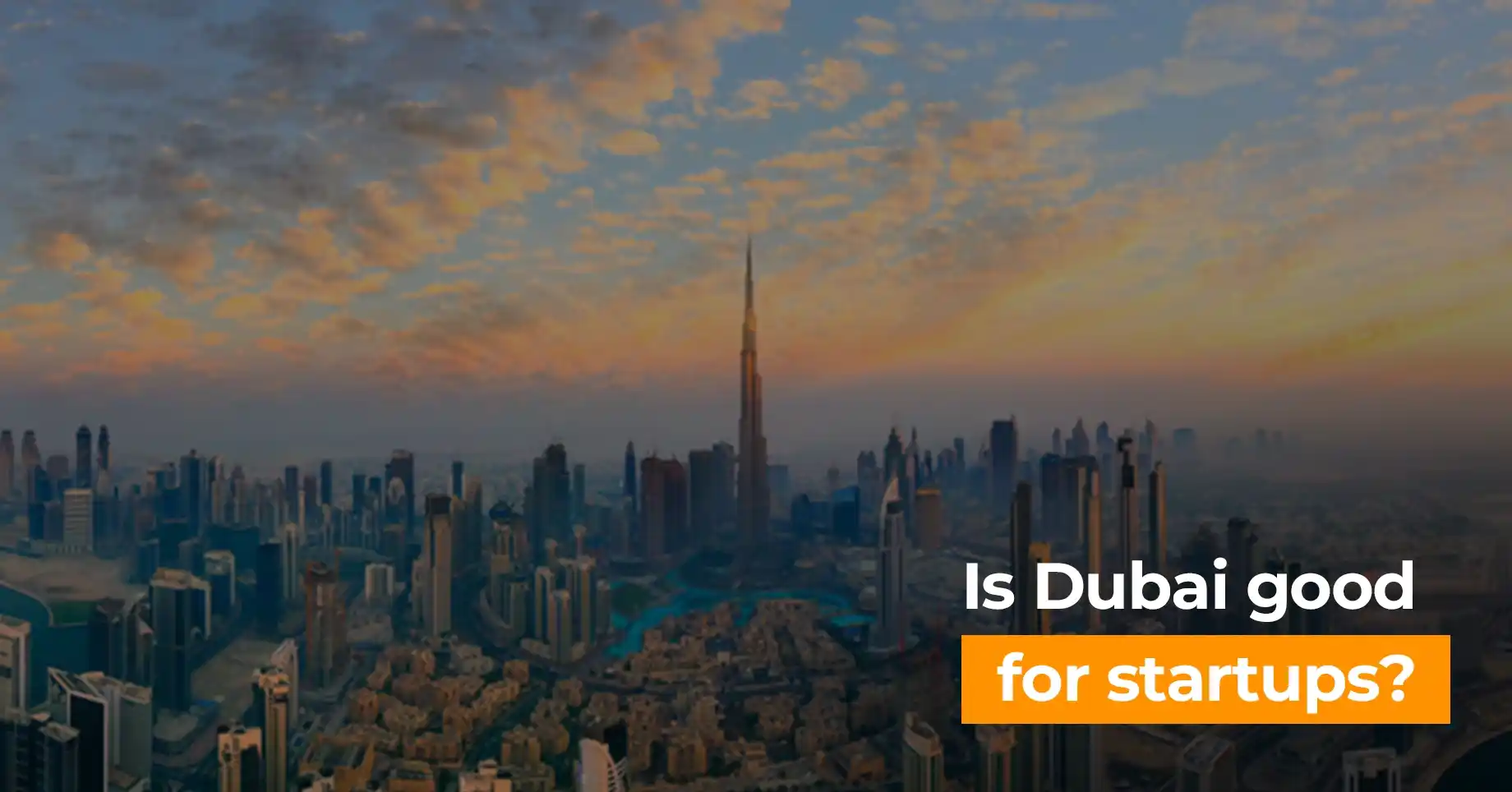Dubai, a city known for its innovation and progress, the city has always attracted entrepreneurs and businesses eager to take on new opportunities. As we journey through 2024, the question arises: Is Dubai still a productive ground for startups? This blog delves into the current landscape for startups in Dubai, uncovering the city's advantages, challenges, and key factors that make it an attractive harbor for startup business in Dubai
The Business-Friendly Environment of Dubai
Dubai's reputation as a global business hub continues to shine brightly in 2024. Its strategic location nestled at the crossroads of Europe, Asia, and Africa coupled with a forward-thinking regulatory framework, establishes a compelling environment for startups.
1. Robust Infrastructure
Dubai boasts modern infrastructure that caters to businesses across various sectors. From advanced transport systems to high-tech communication networks, the city is adeptly equipped to handle the demands of modern startups. Facilities like Dubai Internet City and Dubai Silicon Oasis further elevate the city’s appeal, especially for tech startups looking for a conducive environment.
2. Government Initiatives and Support
The Dubai government remains exceptionally supportive of entrepreneurial endeavors. Several initiatives and programs have been launched to promote innovation and streamline the process of setting up a business:
-
Dubai SME: This government agency provides funding, guidance, and valuable resources for startups
-
Mohammed Bin Rashid Innovation Fund: Provides funding for innovative businesses to accelerate their growth.
-
Startup Dubai: An easy-to-use platform with resources and support for new entrepreneurs
3. Access to Capital
Dubai's financial ecosystem is rich with funding opportunities. Venture capital firms, angel investors, and crowdfunding platforms are all accessible. The city’s financial district, DIFC, is home to numerous investment firms and financial institutions actively seeking promising startups to invest in. If you’re wondering how to get funding for startup in Dubai, exploring these lanes is crucial.
The Startup Ecosystem
Dubai’s startup ecosystem is a dynamic and diverse arena, with various industries from technology and fintech to health tech and e-commerce. The city’s vibrant environment encourages innovation and collaboration, providing startups with great resources and networking opportunities.
1. Business Incubators and Accelerators
Dubai offers several incubators and accelerators that provide startups not only with funding but also invaluable mentorship and networking opportunities. One of the notable examples include:
-
Dubai Technology Entrepreneur Centre (DTEC): Provides office space, mentorship, and access to a network of investors.
2. Networking and Community Support
The startup community in Dubai is active and supportive, with numerous events, meetups, and conferences held throughout the year. These gatherings provide opportunities for entrepreneurs to network, share ideas, and collaborate on new projects. The city’s ecosystem is home to some of the best startups in Dubai, often participating in these events and sharing insights with emerging entrepreneurs.
Challenges and Considerations
While Dubai presents plenty of opportunities for startups, there are challenges to consider:
1. Regulatory Hurdles
Understanding regulations can be tricky for foreign entrepreneurs. Understanding local laws, obtaining necessary licenses, and complying with industry-specific regulations are essential steps.
2. Market Competition
Dubai’s thriving business environment means heightened competition. Startups need to offer something unique to stand out in a crowded market
3. Cost of Living and Operations
The cost of living and doing business in Dubai can be high, particularly in prime locations. Entrepreneurs need to carefully plan their budgets and consider cost-effective strategies for their operations.
Conclusion
In 2024, Dubai will remain a premier destination for startups, thanks to its robust infrastructure, supportive government initiatives, and access to capital. Dubai’s vibrant startup scene, strategic location, and business-friendly atmosphere make it an ideal place for new ventures. Whether you are launching a startup business in Dubai or exploring opportunities to join the ranks of the best startups in Dubai, leveraging local resources and understanding the market can lead to success
Frequently Asked Questions
Q: What makes Dubai a good location for startups?
A: Dubai offers a business-friendly environment, robust infrastructure, government support, access to capital, and a vibrant startup ecosystem, making it an attractive location for new ventures.
Q: What are some challenges for startups in Dubai?
A: Challenges include navigating regulatory requirements, facing market competition, and managing the high cost of living and operations.
Q: How can startups find funding in Dubai?
A: Startups can seek funding from venture capital firms, angel investors, government grants, and crowdfunding platforms available in Dubai. For more details on how to get funding for startups in Dubai, exploring these funding sources is essential.
Q: Are there government programs that support startups in Dubai?
A: Yes, programs like Dubai SME and the Mohammed Bin Rashid Innovation Fund provide financial support, mentorship, and resources to startups.
Dubai's appeal as a startup hub continues to grow, offering a wealth of opportunities for entrepreneurs willing to navigate its vibrant yet challenging landscape. Embrace the city’s dynamic environment and leverage the resources available to turn your startup idea into a thriving reality
